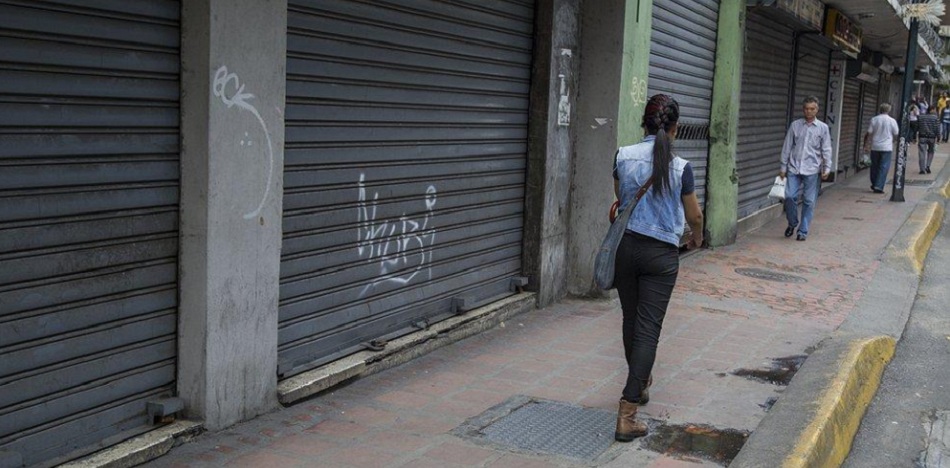During the last five years of “socialism” in Venezuela, 60% of its businesses have closed, in the wake of the serious economic crisis and the draconian controls imposed by the Nicolás Maduro regime.

According to the National Council of Commerce and Services of Venezuela (Consecomercio), of every 10 companies that were open five years ago, only four survive today.
Maria Carolina Uzcátegui, president of Consecomercio, explained that the merchants do not have enough funds to pay the salaries of their workers because the regime unilaterally increases wages, but maintains price controls on the few products available in the market.
“This year has been complicated because the protests that took place between April and July affected the stores and also because during the last three years there has been a continuous fall of the gross domestic product that exceeds 25% of the commercial sector,” Uzcátegui said.
The purchasing power of Venezuelans has diminished: not only are there not enough products on the market, but there is no money to buy them either. This is because Venezuela has the highest inflation rate in the world and the lowest wages in the region. And “the forecast for next year appears very black,” she added
The crisis has further deepened because entrepreneurs have gone more than two months without acquiring the foreign currency needed to import raw material that would serve to produce goods to bring to market. This has forced them to go to the parallel dollar market, which makes it more expensive and difficult to maintain and operate a business.
“Nowadays, all imports” are being made “on a parallel dollar, which leads to a situation where price dynamics that exist in the black market also apply to the price dynamics that establishments have in their products and services,” affirmed the president of Consecomercio.
As part of this crisis that worsened with the fall in oil prices in 2014 and the misappropriation of public funds, Venezuela faces a serious shortage of food and basic medicines that businessmen claim is due to the fall in national production and their inability to access the currencies controlled by the government.
The president of the Fedecámaras employers’ association, Carlos Larrazabal, indicated that this year the Venezuelan GDP will fall close to 12%, a decline that has been growing since 2012 and will soon exceed 35%. He added that situations like this are normally only seen during periods of war.
Of the 800,000 existing companies in Venezuela before Hugo Chavez came to power in 1999, only 230,000 remain, which means the “death” of at least 570,000.
Experts say that the economy in Venezuela has retreated 50 years in terms of income per capita and the supply of goods and services, while other countries in the region have generally been growing economically.
According to the economist and professor of the Institute of Higher Studies in Administration (IESA), José Manuel Puente, the policy of price and exchange control is “one of the deadly sins” committed by Chavez during these 18 years, whose consequences are seen in hyperinflation, and a parallel exchange rate that exceeds 2,800 times the official rate.
Add to this the economists’ inflation forecast for 2018. According to experts, Venezuela’s inflation for next year will be 2,300%.
Sources: La Patilla, El Universal













